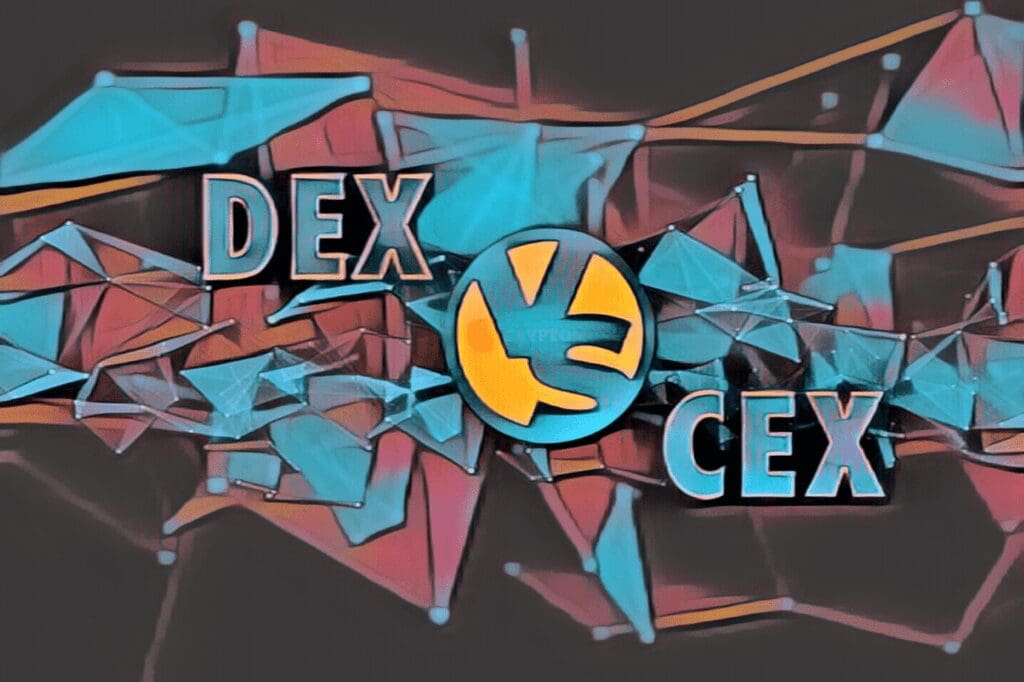Crypto space is at an all-time high at the moment. At the time this article was written, the cryptocurrency market cap sits at a massive, massive volume of $1.21 Trillion, which is bigger than more than 90% of the nations in the world right now. The trades are enormous, stakes are huge. Within all these stories unfolding, the identity of cryptocurrency exists majorly around the concept of decentralization, security, or privacy.
Decentralization is the idea that no single entity or a concentrated group of entities is in the driver’s seat of the car. The exchanges and trades that we happen to do today in the crypto space are done on platforms known as crypto exchanges. The crypto exchanges that operate today can broadly fall into a couple of categories- CEX and DEX.
CEX is an abbreviation for Centralized Exchanges, while DEX is an abbreviation for Decentralized Exchanges. Unfortunately, even though you are a believer in the idea of cryptocurrency and decentralization, the idea of distributed power, the idea of bringing the authority back to the common people, or even if you want the crypto industry to flourish at the least, to make your handsome profits, the truth is, there is a high probability you are trading your crypto sums on a CEX, and while that’s absolutely not a bad thing to do, it hurts the very basic sentiment and concept of the cryptos, or blockchain in precise.
Centralized Exchanges (CEX)
CEX is a platform that is under the control of a single central authority, a single entity. This entity handles all transactions on the platform and users basically deposit their funds into the wallets of the exchange. These are the crypto platforms most of us are familiar with, such as Coinbase, Binance, and Kraken. CEX operate under a centralized authority, which means they have control over your funds and act as intermediaries in your trades. Of course, they are the most robust and secure solutions existing out there. They have a strong user base, and they are massively popular and thus more liquid, which means there is a higher chance to find a buyer/seller for your desired crypto. More important than that, they have fiat currency support, which means we can buy crypto using any particularly suitable fiat currency like dollars or rupees and sell that crypto to get equivalent fiat currency in return. More or less, they function very analogous to stock exchanges. Above all of that, the unspoken pro of CEX is their beginner-friendly UI in general.
However, all of these facilities come at a cost, the cost of authority and the cost of trust. These central entities are in control of the funds and you have to trust them to do the right thing for you. Additionally, they have a central point of failure. When hackers or elements of chaos know the right spot to hit, securing something is a very very difficult task. This makes CEX very lucrative targets for hackers due to its central nature.
Additionally, due to its centralized nature, the government can anytime take a jibe and impose regulatory restrictions and exert influence. This impacts one’s ability to trade freely.
Decentralized Exchange (DEX)
Things are completely flipped for the lesser-known, but the more visionary, DEXs. In DEXs, the power shifts to the users. DEX operates on blockchain technology and smart contracts, eliminating the need for intermediaries. Transactions on DEXs are completely peer-to-peer and any kind of funds are completely in your own control, and not in another entity’s wallet. Since points of failure are highly distributed and randomized, it is very difficult, yet not impossible, for a hacker to find vulnerable points. DEX transactions are recorded on the blockchain, making them transparent and verifiable. This allows users to independently audit the exchange’s activities and ensures a higher level of trust.
Also, no one can impose any sort of constraint on DEXs as they operate in a decentralized manner. They provide access to cryptocurrencies even in regions with strict regulations, giving users more freedom to trade.
However, for an average user, it is very difficult for one to get accustomed to using DEXs. Understanding how to use wallets, manage private keys, and interact with smart contracts requires a learning curve. Also, DEX typically has lower liquidity compared to CEX. It might be a challenging job for you to find a buyer or a seller for your crypto that easily as compared to CEX.
Also, DEX may lack certain features available on CEX, such as advanced order types or margin trading. The decentralized nature often comes with trade-offs in terms of functionality and convenience.
Uniswap and SushiSwap are a couple of examples of DEXs.
Final Notes
Now, that you can clearly see the difference between CEXs and DEXs, and which one is yours, it is completely upon your set of requirements to lock in with a particular type of exchange. Choosing the right exchange depends on your priorities, whether it’s ease of use, liquidity, privacy, or resistance to censorship.
Remember to research and select reputable exchanges, regardless of their centralized or decentralized nature. Security should always be a top priority in the world of cryptocurrencies. Now that you have a better understanding of CEX and DEX, you can make informed decisions and explore DeFi in a better way.
Happy trading and stay decentralized!

